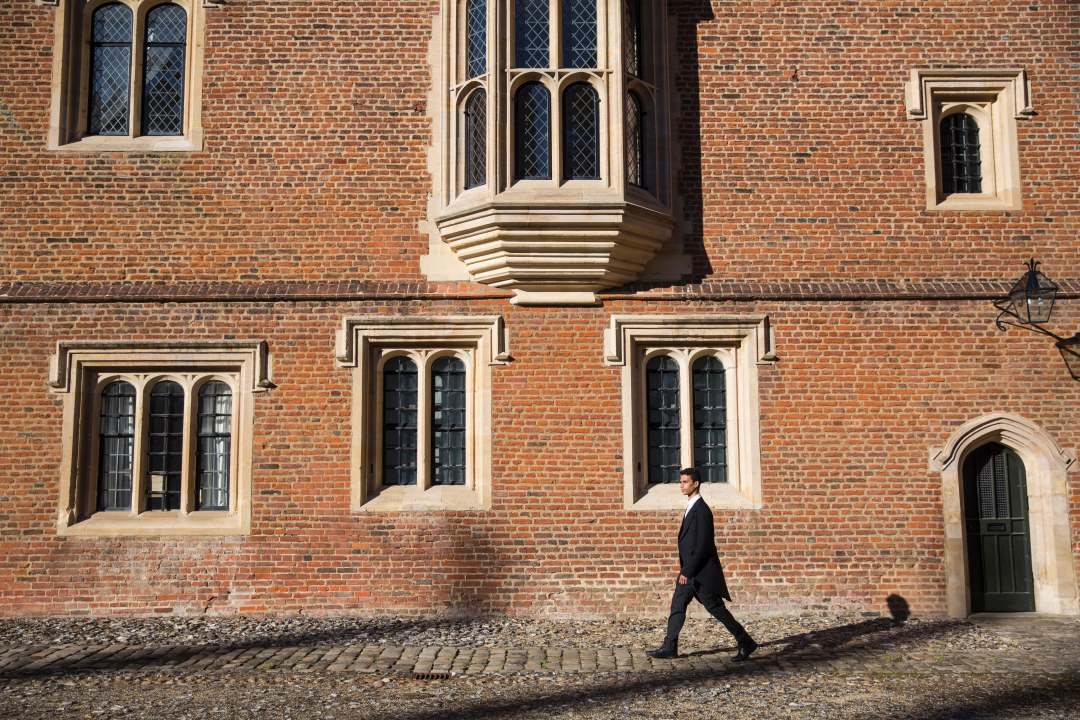Last week Eton College made the controversial decision to sack
an English teacher after he refused to take down his YouTube video entitled ‘The Patriarchy Paradox’. In the 30-minute lecture, Will Knowland argues that the patriarchy results from biological differences rather than social constructs and that the system benefits women.
Eton’s decision is not, as many people would argue, an attack on free speech and fundamental liberties. It is an attack on foolishness.
If Knowland’s intention had been to encourage healthy academic debate, then there are many other outlets he could have chosen: an assembly, a debate, or one of his English lessons. Putting up a YouTube video in which he made contentious statements, often without evidence, and then refused to take it down (despite being asked to, apparently multiple times) is not bravery; it is self-serving and self-sacrificing.
Eton is right to err on the side of caution. In many ways, Knowland forced the headmaster’s hand; if Simon Henderson did nothing, the school could be open to an investigation from the Equality and Human Rights Commission. How you feel about that question is really a separate issue — the point is whether, given the circumstances, Eton was right to sack Knowland.
If this incident raises questions of free debate, then where’s the debate?
Most teachers’ contracts clearly state that they must not do anything that would bring the school into disrepute. Knowland must have known exactly what he was doing by posting a video that is so provocative and partisan.
His ideas are clearly worthy of discussion, but his failure to present them in a nuanced or balanced way, and to distance his own views from those he was purporting to examine, put the school in an impossible position.
The crux of his argument seems to be that biological differences mean that men’s role is to procreate, provide, and protect (2:50). He then cherry-picks numerous examples as to how this has benefited women, for example, the fact that ‘men invented over 90 per cent of the world’s inventions’ (10:40). This may be true, but this claim lacks any analysis, or even acknowledgement, that there are myriad other factors — social, historical, political, economic — that explain why this is the case. Again, these ideas are clearly worthy of examination — but Knowland failed to rigorously examine them.
Many of his examples are also drawn from animals; an elephant seal’s mating ritual may be interesting (23:15) but it’s not a particularly strong explanation for gender roles in 21st-century western society. Some of his claims are also just factually dubious, like the assertion that ‘anthropologists have never found a genuine matriarchy’ (27:40).
If Knowland had truly wanted to treat the video as a pedagogical exercise, then he could have presented the lecture very differently. Even just peppering the script with a couple of questions and counterpoints would have made it seem more educational, and less like a personal tirade.
Instead, it is full of opinions masked as facts, and sweeping generalisations like ‘a world without men would be awful for women’ (9:33) — without saying the opposite is also true — or that ‘biologically speaking, the idea that men exert power over women is nonsense’ (22:24). Where to even begin with such an assertion?
Furthermore, his masculine heroes are deeply troublesome. Fictional characters like Thor (3:45), King Leonidas from 300 (18:36) and Bane (25:44), are hardly realistic exemplars for young boys. He also tells his audience that boys can’t ‘show vulnerability, talk about [their] feelings and wear rainbow laces if they’re dead’ (23:42), just one of numerous examples where Knowland seems to encourage violence as a natural, if not healthy, outlet.
He then uses a clip from Goodfellas of Henry Hill beating up his neighbour for molesting his girlfriend as evidence that ‘male aggression is a biological fact… whether we like it or not’ (25:42). He also seems to agree with Scarface’s Tony Montana’s observation that ‘first you get the money, then you get the power, then you get the women’ (29:12), as if psychotic, murderous, cokehead gangsters are a valid voice of reason.
It is notable that many of Knowland’s arguments would not look out of place on an incel Reddit forum. Knowland repeatedly says that women use their sexuality to their advantage, stating that they can ‘exploit their power of sexual choice to get males to compete to do things for them’ (22:32). This is classic incel rhetoric: believing that women use their sexual appeal to manipulate and control men, and that if men can’t get sex, it’s because of women withholding it from them. This is a terrible message to teach teenage boys. The problem is not a discussion of such claims, the problem is with Knowland’s presentation; his lack of analysis, his failure to question the assertions made in his video. If this incident raises questions of free debate, then where’s the debate?
This video also hardly challenges predispositions. Having been a young female teacher at an all boys’ school, I know that sexism is rife in these institutions. Many boys refuse to engage with feminist ideas — even though they believe in equality of opportunity — because of its associations with man-hating and radicalism. Knowland’s video ends with a quote from the radical feminist Andrea Dworkin, who apparently represents all feminist views, where she ‘advocates incest and paedophilia’ (30:25). If this is what young boys associate feminism with, no wonder they reject it.
Knowland is free to keep posting this thinly-veiled misogynistic propaganda on YouTube, but that doesn’t mean he is free to keep being a teacher at the same time. Whether what he says is unlawful or not is almost irrelevant; you can hardly blame Eton for wanting to distance themselves from commentary which is so incomplete, ignorant, and lacking in intellectual rigour.







Comments